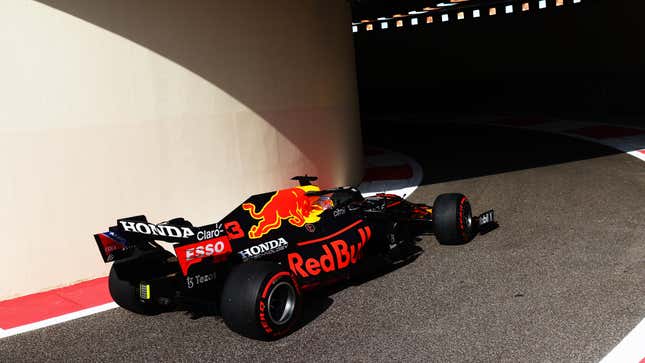
When Honda announced it would be leaving Red Bull Racing and Formula One after the conclusion of the 2021 season, all hell broke loose. Red Bull Racing managed to convince F1 to freeze powertrain development while it sought out a new technical partner. Except, now Honda is back in the Red Bull Racing fold.
Yep. Red Bull motorsport boss Helmut Marko announced today that Honda will continue with the team through 2025, Motorsport.com reports.
As with a lot of things in F1, there are some pesky politics and strategies at play. After Honda announced its official works involvement in F1, Red Bull managed to convince the company to provide the parts for Honda power units, which Red Bull would assemble and maintain itself rather than relying on Honda engineers to do the tough work. Not an ideal solution — after all, you definitely want the most qualified people working on your power units, and those people come from Honda, not Red Bull — but one that the team could work with.
But for that plan to work, Red Bull would need F1 to freeze power unit development. That way, it could just continue to receive the same kit engines from Honda until 2025, which would give the team plenty of time to get its shit together and find a new power unit supplier. In the meantime, Mercedes and Ferrari wouldn’t be able to continue developing power units and thus gain a strong competitive advantage. All teams and all power unit suppliers could then focus on getting back in the development game for 2026.
With Red Bull now able to take delivery of complete Honda engines, though, things could be different.
From Motorsport.com:
“We have now also found a completely different solution to the one originally envisaged,” Marko told Autorevue magazine.
“The engines will be manufactured in Japan until 2025, we will not touch them at all. That means that the rights and all these things will remain with the Japanese, which is important for 2026 because it makes us newcomers.
Marko suggested that winning the 2021 world championship has encouraged Honda to remain closer to F1 than had been expected.
“In the course of our ever greater successes, a certain rethinking has taken place among the Japanese. And also that they could of course use the battery knowledge for their electrification phase.
“It was initially planned that they would only make our motors for 2022. Now it has been decided that this will continue until 2025, which is of course a huge advantage for us. This means we only have to make fine adjustments and calibrations.”
As with most things in F1, this decision has come with a lot of speculation. Should this move by Red Bull be considered cheating? Did they actively lie to F1 to freeze the powertrains, only to catch everyone off guard by keeping Honda’s efforts? Should F1 immediately lift the development freeze? Could Honda have undertaken engine development in secret? Did Red Bull use this opportunity to intentionally poach engineers from competitors? Or was it legitimately just a case where Honda rethought its original business strategy?
All that said, it’s unlikely that F1 will remove the engine development ban. The series is introducing a whole host of new technical regulations in 2026, which includes the introduction of an all-new set of powertrain rules. With F1's new cost caps, a freeze will free up resources for teams to focus on the future without having to continue pouring money into the present competition.